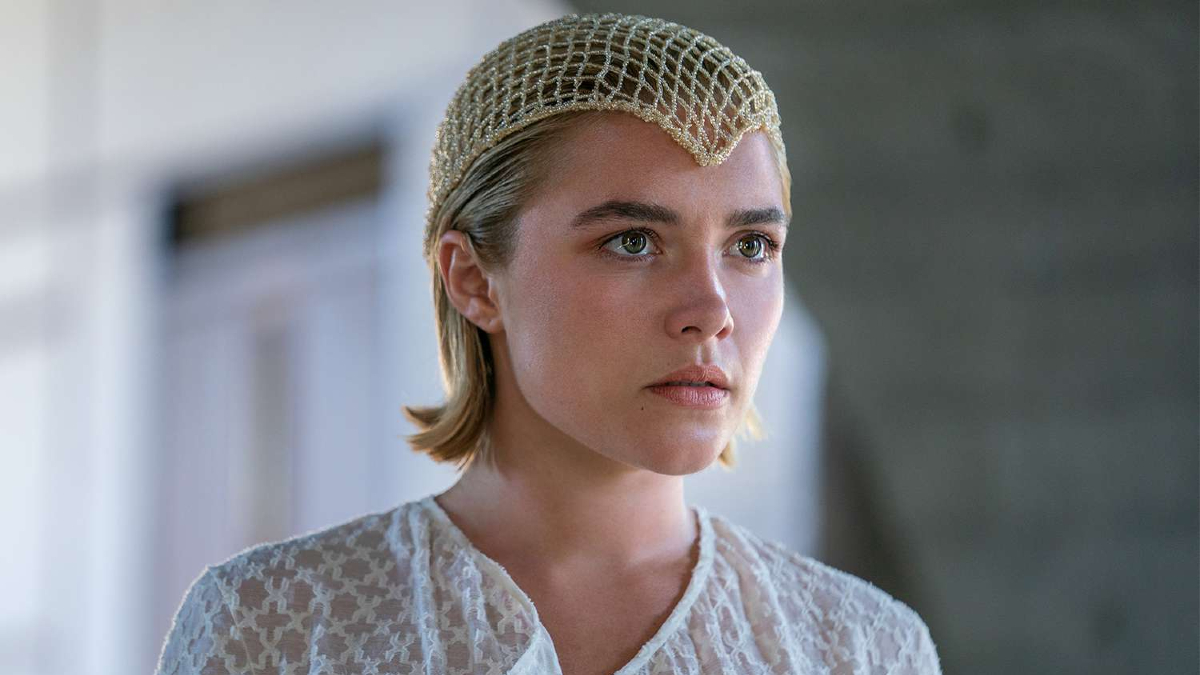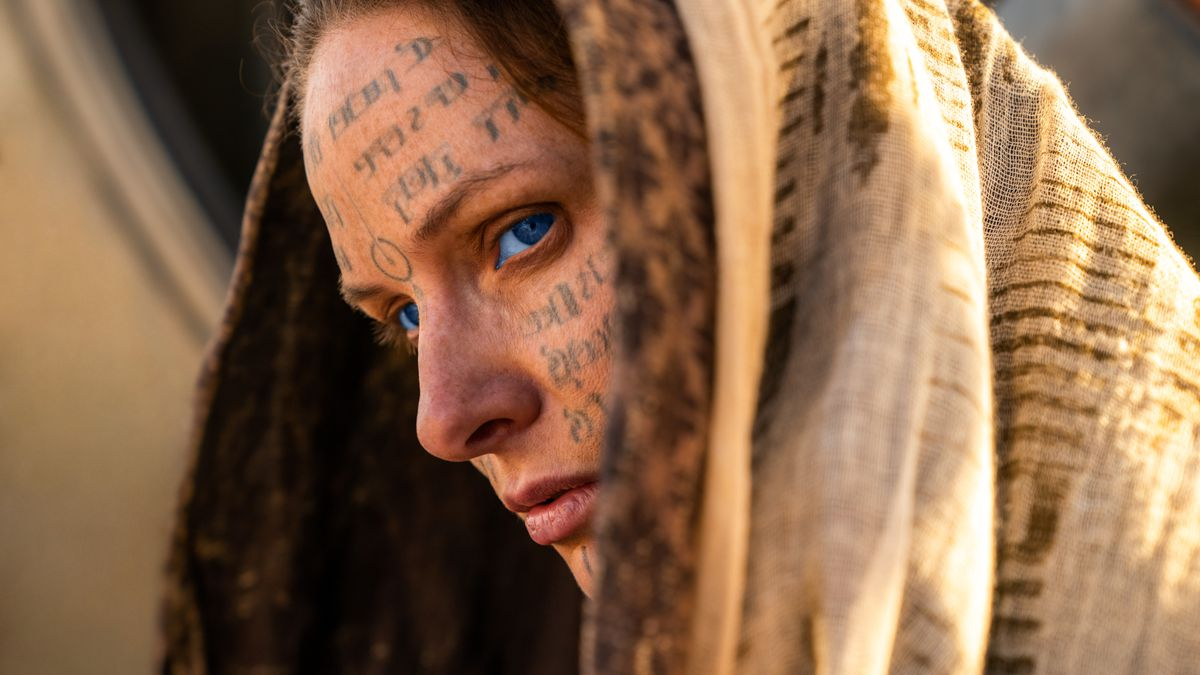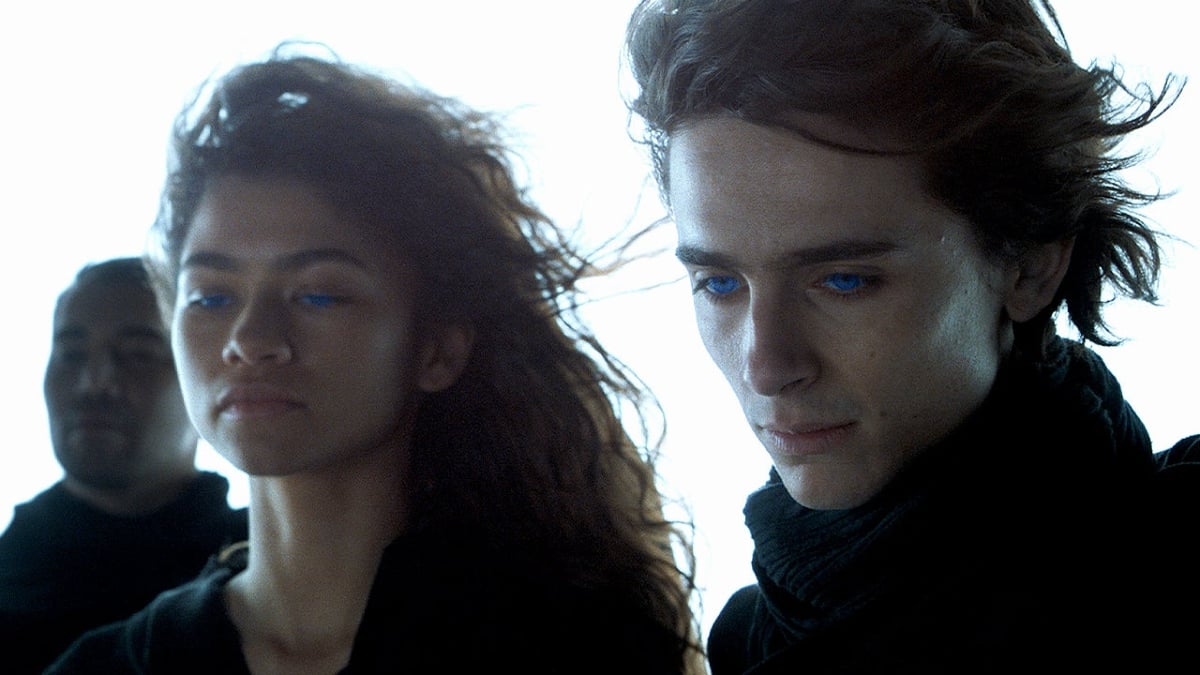Dune: Part Two isn’t the end of the story for Paul Atreides, Chani, and the Fremen. Frank Herbert’s sci-fi epic continues in a series of novels, the second of which, Dune Messiah, is the inspiration for the next sequel.
Filmmaker Denis Villeneuve is currently writing the third and final installment in what he’s envisioned as a Dune trilogy. So if you exit Dune: Part Two with the nagging feeling that the story is incomplete, you’re right. Frank Herbert followed up his 1965 sci-fi novel with a series of sequels, starting with 1969’s Dune Messiah, which he wrote in response to a popular misconception among readers—that Paul Atreides, the ostensible protagonist of Dune, is a messianic hero. Villeneuve has smartly laid some groundwork in his first two films to cast doubt on this notion; the ending of Dune: Part Two specifically diverts from the source material to pave the way for Messiah.
Villeneuve isn’t rushing the next Dune sequel; nearly three years elapsed between the first and second films, and we may be waiting even longer than that between Part Two and Messiah. If you simply cannot wait to know what happens in Dune Messiah, here’s the abridged version.
Emperor Paul Atreides
Dune Messiah begins with a substantial time-jump: After deposing Shaddam IV, Paul Atreides has been Emperor for 12 years. During that time, over 60 billion people have died as a result of a holy war being waged across the universe in the name of Paul, who embraced his identity as messiah to the Fremen. Unfortunately, there’s little Paul can do to control the religious zealots committing atrocities in his name, but his prescient gift has led him to believe that he’s actually spared many lives, and that fewer people are dead because he followed his visions.
Paul spends much of Dune Messiah struggling with his gift; are his visions of the future coming true because he’s putting so much faith in them, or could he make a better future by ignoring or defying his premonitions? Essentially: Is Paul creating self-fulfilling prophecies? (Or does Paul just have anxiety disorder? WHO KNOWS.)
Alia
Dune: Part Two doesn’t fully get into Alia, and understandably so. At the end of the movie, his mother, Lady Jessica, is still pregnant with Paul’s sister. In the book, when Lady Jessica participates in the Spice Agony—a tradition in which the Bene Gesserit acquire the memories of all their female ancestors—she consumes the Water of Life, the bile of a drowned sandworm. You know, witch stuff.
Because of this, Alia is born with the consciousness of an adult Reverend Mother, which means she has all the powers and abilities of a fully developed Bene Gesserit. So even though she looks and acts like baby, she is not baby. Sort of a reverse Poor Things, if you will.
Alia is considered an abomination among the Bene Gesserit (basically because they shouldn’t be exposed to ancestral memories until they have a personality of their own, which, fair). Meanwhile, on Arrakis, a four-year-old Alia leads an army of Fremen to battle the invading Sardaukar and Harkonnen men and ends up killing Baron Harkonnen with a poison knife. She rules.

Princess Irulan and Chani
Paul is married to Princess Irulan, who has been enlisted by the Bene Gesserit to bear Paul’s child as part of their breeding program. And just where is Chani? She is Paul’s concubine, which is a fancy royal way of describing an officially permitted mistress who gets to boink the ruler without the hassle of participating in public appearances, but she also gets none of the formal recognition or respect, so I’m not sure anyone actually “wins.”
This puts Paul in a bit of a pickle: He doesn’t want to have a child with Irulan (rude), but he also hasn’t been able to conceive a child with Chani. Following the Bene Gesserit’s instructions, Irulan has been spiking Chani’s food with birth control, rendering her unable to conceive. Paul knows this (because he is a gifted boy) and allows it to continue in an effort to protect Chani, who will die giving birth to their child, if his visions have any say in the matter. And they really do.
But then Chani decides to revert to a Fremen diet and—wouldn’t you know it—she gets pregnant.
The assassination conspiracy
The other big part of Dune Messiah concerns a conspiracy between the Bene Gesserit, the Spacing Guild, and the Tleilaxu to assassinate Paul. We’ve already met the Bene Gesserit, a group of powerful women who devote their lives to developing super-powers and pulling the strings throughout the entire universe. They are very cool, sort of like nuns if nuns worshipped themselves instead of God. We also know a bit about the Spacing Guild, the organization that controls interstellar travel and finance, and whose members get ripped on spice melange to enable hyperspace travel. (One time I took magic mushrooms and believed very strongly that I could suddenly understand non-linear time, so I totally buy this element of Dune lore.)
The Tleilaxu, also known as the Bene Tleilax, are a caste-based society of genetically modified people who are exceptionally skilled in genetic engineering. They team up with the Bene Gesserit and the Spacing Guild to take Paul down and end the Atreides line. Their contribution to the conspiracy is Hayt, a ghola, or engineered clone, of Duncan Idaho—WHAAAAAT? (That’s you, reading this.) The thing is, the Tleilax aren’t actually interested in destroying House Atreides. What they really want is to solve their ghola problem: the clones are perfect replicas, except they don’t retain any of their original memories.
Ultimately, the conspirators want Paul to be so destabilized by the return of his old friend and teacher that he begins questioning himself and every decision he’s made. Hayt is also a problem among Paul’s Fremen followers, who believe the Tleilaxu and their genetic meddling to be deeply immoral.
All the while, Paul doesn’t know about the conspiracy because one of the Spacing Guild navigators is also a prescient little mindfreak, and he’s using his power to keep Paul in the dark.

How it ends
One of Paul’s old allies tips him off to a growing rebellion among the Fremen and gifts the emperor with Bijaz, a little Tleilaxu guy with a photographic memory. Bijaz has been sent by the Tleilaxu to condition Hayt so that when he encounters a specific trigger, he’ll respond by killing Paul.
Paul sends some of his military guys off to deal with the Fremen rebels, which they do by setting off a bomb (engineered by the friggin’ Tleilaxu, who else) that blinds Paul. According to the laws of the Fremen, those who become blind must wander off into the desert alone in self-imposed exile. But Gifted Boy Paul still has his visions, which allow him to see, in a sense. The kicker is that Paul can only see by strictly adhering to his visions, making his sight incredibly limited and giving him no other choice but to follow his premonitions. Madame Web would never.
And then—and I really hate to tell you this—Chani dies. She gives birth to twins, a boy and a girl, and immediately dies. It’s very Revenge of the Sith. Paul reacts not unlike Anakin Skywalker, triggering Hayt to attack him. But the event also results in the recovery of Duncan Idaho’s memories and gives him full autonomy, so he decides not to kill Paul. And Paul isn’t surprised by any of this because he’s so gifted. At this point, you start to understand why everyone wants to kill Paul; he’s kind of annoying to be around.
Paul and Chani’s twins are born with full genetic memory—the memories of all their ancestors, a skill the Bene Gesserit partially acquire over time and which they try to elicit through breeding to bring about the Kwisatz Haderach, or chosen one (a.k.a. Paul). Scytale, a Face Dancer (servants genetically engineered by—say it with me now—the Tleilaxu), holds a knife to the super-twins and tells Paul he can bring Chani back as a ghola if the emperor abdicates his throne, but Paul is understandably suspicious of gholas and decides to pass. What happens next is more bonkers than that time a werewolf saw a baby and decided she was his wife.
No longer prescient, Paul taps into his infant son’s consciousness and uses his eyes and his prescience to psychically THROW A DAGGER and kill Scytale.
The end?
Now that Paul is blind both literally and figuratively, he decides to enter self-imposed exile in the desert, per Fremen tradition, choosing to exit the world as a man instead of a god. The Fremen respect this and once again pledge to honor House Atreides, guaranteeing that Paul and Chani’s children—Ghanima and Leto II—will be protected. Princess Irulan, feeling icky about spiking Chani’s food with birth control, renounces the Bene Gesserit and dedicates herself to teaching Ghanima and Leto II.
As for Alia, she has a nice little romance with Duncan Idaho, becomes guardian of the twins, and orders the execution of those who conspired to kill her brother.
(featured image: Warner Bros.)










Published: Mar 1, 2024 06:06 pm